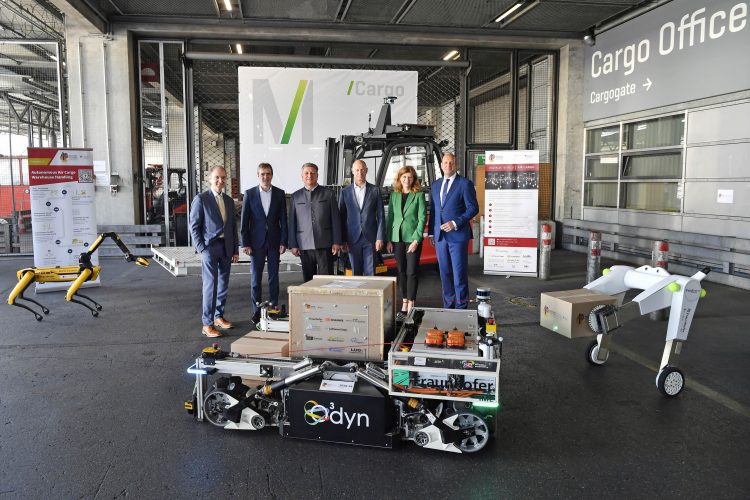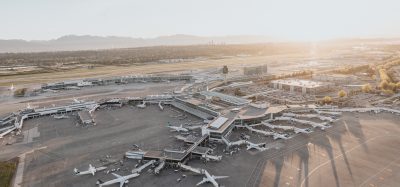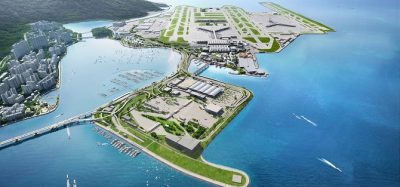Digital Testbed Air Cargo: Science fiction tech is now a reality
- Like
- Digg
- Del
- Tumblr
- VKontakte
- Buffer
- Love This
- Odnoklassniki
- Meneame
- Blogger
- Amazon
- Yahoo Mail
- Gmail
- AOL
- Newsvine
- HackerNews
- Evernote
- MySpace
- Mail.ru
- Viadeo
- Line
- Comments
- Yummly
- SMS
- Viber
- Telegram
- Subscribe
- Skype
- Facebook Messenger
- Kakao
- LiveJournal
- Yammer
- Edgar
- Fintel
- Mix
- Instapaper
- Copy Link
Posted: 30 May 2024 | Emily Budgen | No comments yet
Digital Testbed Air Cargo (DTAC) is taking the designs of science fiction and making them reality, elevating air cargo handling.


Researchers from the Fraunhofer Institute for Material Flow and Logistics IML presented the first results of the “Digital Testbed Air Cargo” (DTAC) research project at Munich Airport. In front of a large audience of high-ranking representatives from politics, administration, media and other industry figures, they delivered a groundbreaking presentation of solutions which will make best use of digital technologies, shaping the future of air cargo.
This isn’t science fiction: Researchers from Frauenhofer IML have demonstrated to the public a “robot dog” which patrolled autonomously through the warehouse, searching for available storage locations. Another feature was a dynamic transport robot that can automatically move pallets to their correct storage locations, while another included a flexible “segway robot” which can place parcels from Euro-pallets onto a conveyor belt.
In conjunction with the Frankfurt University of Applied Sciences, the insurance company KRAVAG, and the industrial partners at Munich Airport (Cargogate, CHI, Sovereign Speed and DB Schenker), they presented the first concrete results of the “Digital Testbed Air Cargo” (DTAC) research project.
“This was a convincing demonstration that shows that we are very well prepared for current and future challenges. This is particularly important in the air cargo industry. The industry has to manage the split between a shortage of staff on the one hand and high throughput rates on the other. This will only be successful if we make use of all the technological developments available to us for process optimisation,” Christian Bernreiter, Bavarian State Minister for Housing, Construction and Transport, emphasised.
Dr. Jan-Henrik Andersson, Chief Commercial Officer & Chief Security Officer of Munich Airport, was also very positive about the research results to date: “The cooperation between Fraunhofer IML and Munich Airport is future-oriented. Considering the increasing volume of air cargo and the staff recruitment challenges, digitalisation, and robotics will help us make cargo and baggage handling more efficient and jobs in these areas more attractive in the near future.”
The DTAC project, which is funded by the German Federal Ministry for Digital and Transport with around 7 million euros and will run until September 2024, is focusing on the question of how the efficiency and performance of the air freight transport chain can be optimised. This is to be achieved through better networking and digitalisation of processes. During the demonstration of the project in Munich, several autonomous and automated devices were successfully used to either completely take over some very labour-intensive and repetitive steps at relevant interfaces in the handling process or to support employees in their physically demanding work.
Robots working in very different ways were given key roles. The “robot dog” Spot from US manufacturer Boston Dynamics, equipped with a scanner and 4K camera, patrolled the warehouse autonomously and identified large storage pallets ready for storage and the corresponding storage locations. An autonomously operating forklift took over the intermediate transport to the automated high-bay warehouse and the omnidirectional, highly dynamic robot O³dyn developed by Fraunhofer IML was responsible for transporting Euro-pallets to an adjacent warehouse.
The evoBOT, also developed by Fraunhofer IML – a dynamically stable system with two gripper arms based on the principle of an inverse pendulum and requiring no external counterweight – placed packages from a Euro-pallet onto the conveyor belt of an X-ray machine and back onto the pallet after the X-ray process. These processes were steered via the Fraunhofer control system software “openTCS” – a low-threshold tool for coordinating automated guided vehicles (AGVs).
Even if not all process steps were fully autonomous during the demonstration that took place at Munich Airport and some processes were controlled manually, the researchers believe that the degree of automation in air cargo handling will increase rapidly.
“On the hardware side, as today has clearly shown, we are already well advanced. In the future, artificial intelligence will support us in coordinating and controlling the vehicles. It will provide the necessary tools and algorithms with which we can pre-calculate the routes of the autonomous robots and safely avoid collisions. Ultimately, we will soon have fully autonomous systems that will make the air cargo industry fit for the future,” Prof. Michael Henke, Executive Director of Fraunhofer IML, summarised.
More Like This
Schiphol Airport: Person killed by jet engine
Schiphol tests innovative device to filter air on the apron
Korean Air AI Contact Centre to enhance customer services
Related topics
Artificial intelligence (AI), Autonomous Technology, Baggage handling, Capacity, Cargo, Innovation
Related airports
Related organisations
Cargogate, CHI, DB Schenker, Frankfurt University of Applied Sciences, Fraunhofer Institute for Material Flow and Logistics IML, German Federal Ministry for Digital and Transport, KRAVAG, Sovereign Speed
Related regions
Related people
Christian Bernreiter, Dr. Jan-Henrik Andersson, Prof. Michael Henke


















